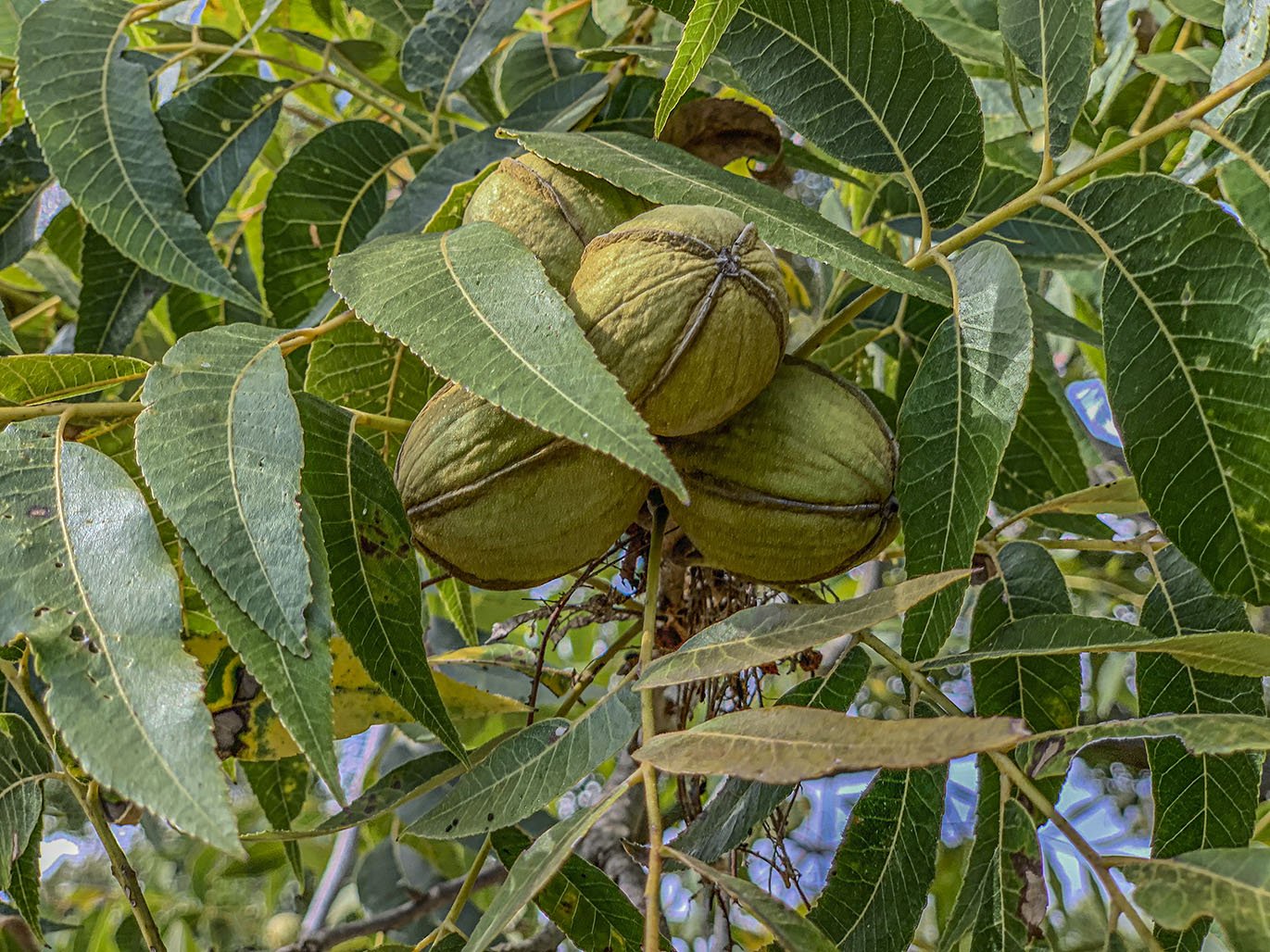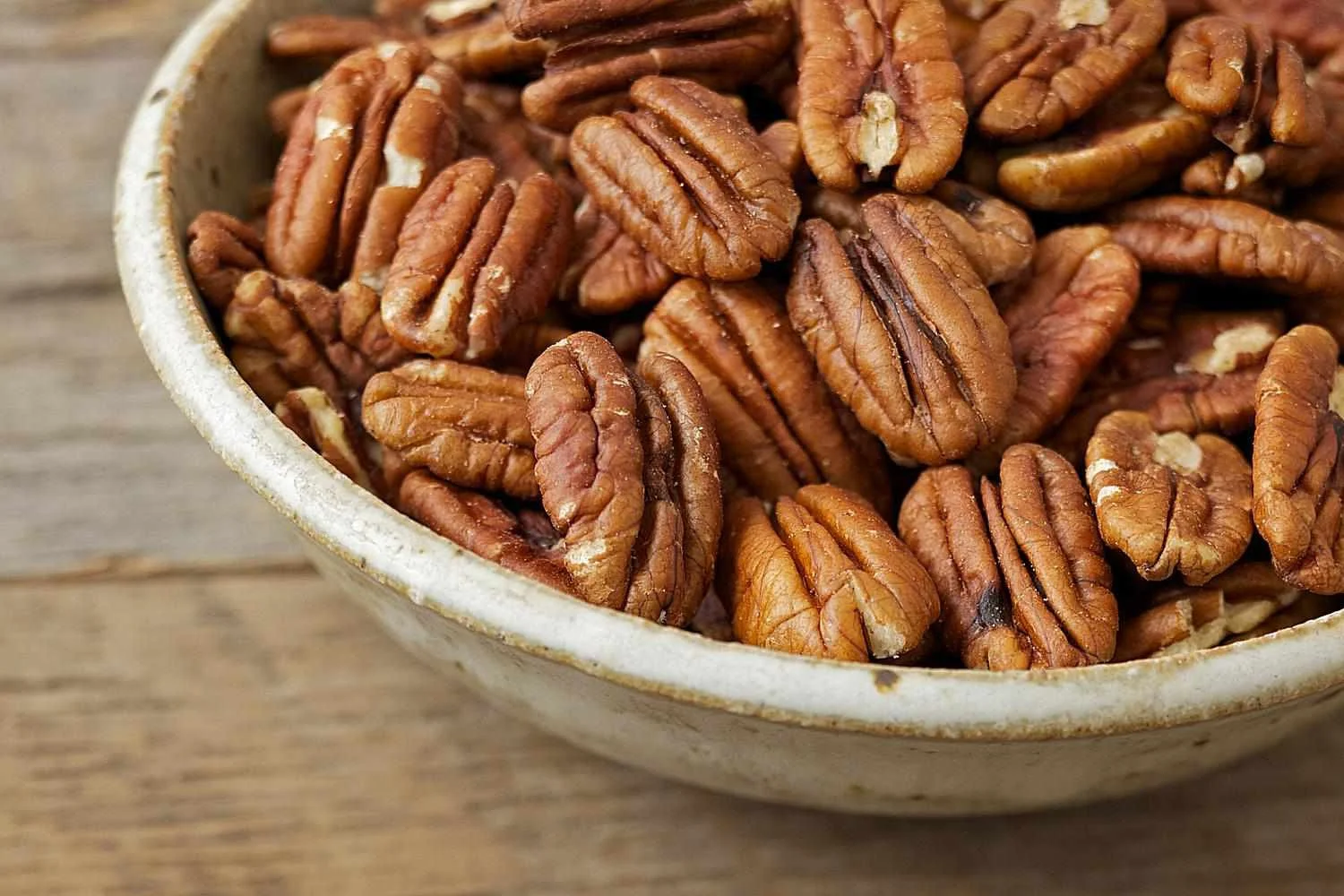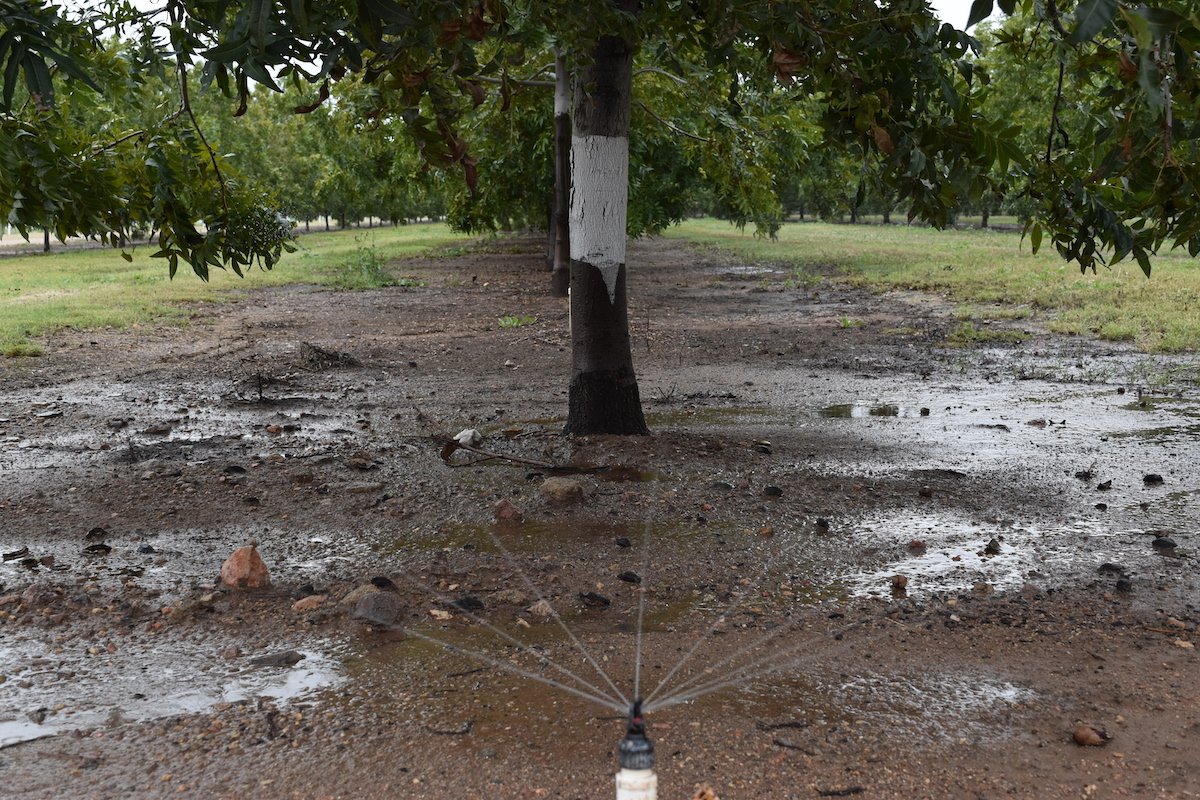Texas Pecan Harvest Amidst Drought and Heat: Nurturing Nature's Bounty
Discover > Farm to Table Eating in Texas > Texas Pecan Harvest Amidst Drought and Heat: Nurturing Nature's Bounty
The great state of Texas, has long been a hub of agricultural prosperity.
One of the iconic agricultural treasures of the Lone Star State is the pecan tree, which produces a delicious and highly sought-after nut, the Texas pecan. However, in recent years, Texas has faced a significant challenge in the form of drought and rising temperatures.
This article explores the impact of drought and heat on the Texas pecan harvest and the resilience of local farmers in nurturing nature's bounty.
Texas Pecans: A Nut Worth Cracking
Pecans (how long do pecans last?), scientifically known as Carya illinoinensis, are native to North America, with a rich history in the southern United States, particularly in Texas. The word "pecan" itself is believed to be of Algonquian origin, and it has become synonymous with a delicious, buttery nut that graces our tables during the holiday season. Texas pecans are cherished for their large size, rich flavor, and versatility in both sweet and savory dishes.
Pecan Orchards in the Lone Star State
Texas boasts a robust pecan industry with orchards spread across the state.
The leading pecan-producing regions in Texas include the Texas Hill Country, the Brazos Valley, and the Gulf Coast. Pecan orchards are not only a source of economic livelihood for many Texans but also play a vital role in preserving the state's agricultural heritage.
From sweet pecan pies to savory pecan-crusted meats, Texan cuisine's love affair with pecans continues to amaze and delight food enthusiasts worldwide.
Drought and Heat: The Texas Challenge
Texas has a reputation for its scorching summers, but recent years have witnessed a heightened frequency of droughts and soaring temperatures. These climatic changes have a direct impact on pecan production, making it increasingly challenging for farmers to maintain healthy pecan trees and ensure a bountiful harvest.
Profound Impact of Drought:
Drought is a significant concern for the Texas pecan industry. It can have a severe impact on the pecan crop, both in terms of quality and quantity. Pecan trees require a consistent supply of water, especially during the critical stages of flowering and nut development. Insufficient moisture during these periods can lead to poor pollination and reduced nut size, affecting the overall yield.
The drought also causes stress to pecan trees, making them more susceptible to various diseases and pests. In addition, during times of water scarcity, farmers often need to prioritize water usage among their crops, making tough decisions about which trees receive adequate irrigation.
Heat Stress and Pecan Trees:
High temperatures, coupled with drought, can lead to heat stress in pecan trees. This stress can affect various aspects of tree health, such as nutrient uptake, photosynthesis, and root development. Ultimately, this can result in reduced nut production and hinder the tree's long-term health.
The Water Woes
Water is the lifeblood of any agricultural operation, and the Texas pecan industry is no exception. Pecan trees require a consistent and adequate water supply to thrive. Unfortunately, droughts have led to dwindling water resources, and many pecan orchards are forced to rely on irrigation systems to provide the essential moisture to their trees. However, these irrigation systems come at a considerable cost, posing a financial burden for many small-scale pecan farmers.
Innovative Irrigation Methods:
Pecan trees often show signs of heat stress, such as leaf scorching and leaf drop, which can be alarming for farmers. In response to these challenges, pecan growers have been adopting various strategies and technologies to mitigate the impact of drought and heat.
Modern irrigation systems are crucial in addressing the challenges posed by drought and heat. Traditional flood irrigation methods can be water-inefficient, leading to significant water wastage. In contrast, more precise irrigation techniques, such as drip and micro-sprinkler systems, have gained popularity among pecan farmers in Texas.
Drip irrigation, in particular, is widely used as it delivers water directly to the root zone of each tree, minimizing evaporation and ensuring that every tree receives adequate moisture. This not only conserves water but also helps maintain consistent soil moisture levels, critical for pecan tree health.
The Resilience of Texas Pecan Farmers
Despite the challenges posed by drought and heat, Texas pecan farmers are renowned for their resilience and adaptability. Many are implementing innovative strategies to combat the adverse effects of climate change on their orchards.
Drip Irrigation
Some farmers have transitioned to more efficient drip irrigation systems that deliver water directly to the base of the pecan trees, reducing water wastage and ensuring that trees receive the moisture they need to thrive.
Varietal Selection
Selecting pecan tree varieties that are better adapted to the changing climate is another strategy employed by Texas pecan farmers. Some varieties are more heat and drought-resistant, making them better suited to the current climatic conditions.
Farmers are investing in soil health by implementing practices like mulching and cover cropping. These strategies improve soil moisture retention and reduce the impact of extreme heat on the trees.
Weather Monitoring
Utilizing advanced weather monitoring technology helps farmers anticipate droughts and extreme heat events. This knowledge allows them to take preventative measures to protect their orchards.
Pest Management
Integrated pest management techniques are increasingly used to minimize pesticide use while still effectively combating pecan pests. Beneficial insects and biological controls are being incorporated into the farming process.
The Nelson Pecan Farm in Inez, Texas sells whole & shelled pecans, honey, free-range eggs, jams and jellies, pickles and seasonal vegetables.
Community Support and Advocacy
Texans take pride in their agricultural heritage and recognize the importance of supporting local farmers. Community initiatives and agricultural organizations have emerged to offer financial assistance, knowledge sharing, and advocacy for pecan farmers affected by drought and heat. These collaborative efforts help ensure the long-term sustainability of the Texas pecan industry.
A Shifting Harvest Schedule
Traditionally, the Texas pecan harvest takes place from October to December. However, with rising temperatures and prolonged droughts, the harvest schedule is shifting. Pecan trees are blooming earlier and producing nuts sooner in the season. This shift can disrupt the established supply chain and impact the availability of Texas pecans for consumers both within the state and beyond.
The Future of Texas Pecans
The future of Texas pecans hinges on the state's ability to address the challenges of drought and rising temperatures. Climate-smart agricultural practices, scientific research, and community support are vital in safeguarding the legacy of the Texas pecan. Furthermore, consumer awareness and demand for sustainably grown pecans can incentivize farmers to adopt eco-friendly practices that benefit both their orchards and the environment.
Heat-Resistant Pecan Varieties:
Farmers have also begun to focus on selecting pecan varieties that are naturally more resilient to high temperatures. Some of these heat-tolerant varieties have shown the ability to maintain better nut development and quality under adverse climatic conditions. By diversifying the pecan tree varieties in their orchards, farmers are better equipped to adapt to changing climate patterns.
Soil Health Improvement:
Maintaining healthy soil is an essential part of protecting pecan trees from the impacts of drought and heat. Practices such as mulching and cover cropping help to improve soil structure, enhance moisture retention, and reduce soil temperature. These techniques, known as soil health practices, play a crucial role in ensuring the long-term viability of pecan orchards.
Weather Monitoring and Prediction:
Advancements in weather monitoring technology have enabled farmers to make informed decisions about their irrigation and pest management strategies. Access to real-time weather data and long-term climate predictions allows pecan growers to anticipate periods of drought and extreme heat. This knowledge helps them adjust their orchard management practices accordingly.
Integrated Pest Management (IPM):
In the face of rising temperatures, the prevalence of pecan pests has become more problematic. Farmers are increasingly adopting IPM strategies to minimize the use of chemical pesticides while effectively controlling pests. IPM combines various tactics, including the release of beneficial insects and the use of biological controls, to keep pest populations in check, reducing the environmental impact of pest management.
Community Initiatives and Support:
Texan communities and agricultural organizations recognize the significance of pecans in the state's culture and economy. Various initiatives, such as farmer co-ops, educational programs, and financial assistance, have emerged to support pecan growers. These initiatives not only offer crucial financial support during challenging times but also facilitate knowledge sharing among farmers to collectively address climate-related issues.
Through increased soil health, water conservation, biodiversity, and animal welfare, Texas regenerative farms can benefit both the planet and local economies.
Consumer Demand for Sustainable Pecans:
Consumers play a pivotal role in the sustainability of the Texas pecan industry. The demand for sustainably grown pecans can incentivize farmers to adopt eco-friendly practices that protect their orchards and the environment. Farmers who can demonstrate that their pecans are produced with a focus on environmental responsibility and conservation practices are more likely to capture the growing market of conscious consumers.
The Path Forward:
The future of the Texas pecan harvest lies in the hands of both farmers and consumers. As climate change continues to impact the state, adaptation strategies and sustainable practices will be critical. Furthermore, research and development in pecan farming techniques, the identification of new heat-resistant varieties, and the conservation of water resources are all essential components in securing the legacy of Texas pecans.
Conclusion
In conclusion, the Texas pecan harvest faces the challenges of drought and heat, but the resilience, innovation, and determination of local farmers offer hope for a fruitful future. These farmers are committed to preserving the state's agricultural heritage, ensuring that the delectable taste of Texas pecans remains a symbol of the state's enduring spirit in the face of climate change.
The Texas pecan harvest, amidst drought and heat, exemplifies the resilience and determination of Texas farmers in the face of a changing climate. While challenges persist, innovative strategies, community support, and a deep-rooted passion for agriculture continue to nurture the bountiful Texas pecan harvest. As the state grapples with the realities of climate change, the Lone Star State's commitment to preserving its agricultural heritage remains unwavering, ensuring that the taste of Texas pecans will grace tables for generations to come.








